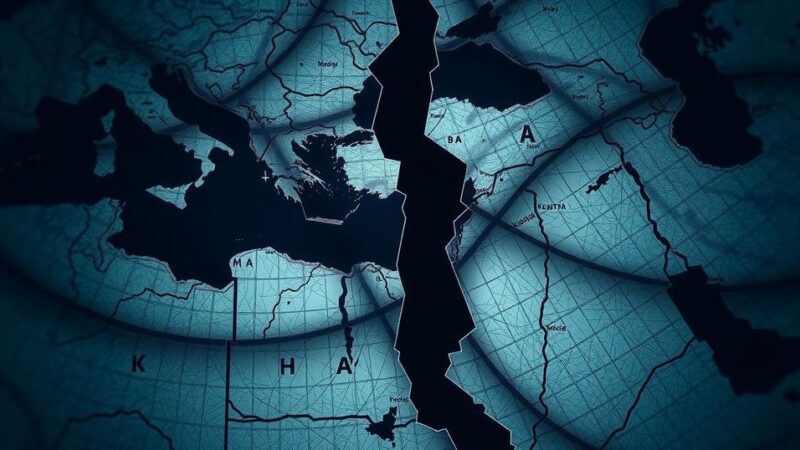Walid Jumblatt, a key figure in Lebanese politics, discusses Israel’s aggressive stance towards Arab nations and the implications for Lebanon amid turmoil in the region. He critiques the ceasefire agreement’s efficacy and emphasizes the need for international support to rebuild after extensive damage from Israeli military actions. Jumblatt expresses cautious optimism regarding Syria’s new leadership and firmly rejects normalization with Israel without addressing Palestinian statehood as a prerequisite for genuine peace.
Walid Jumblatt, a prominent Lebanese politician and Druze community leader, remains a significant voice in Middle Eastern politics despite stepping back as the head of the Progressive Socialist Party in 2023. His insights are particularly relevant during this tumultuous time, marked by Syria’s regime change, escalating tensions between Iran and the United States, and Hezbollah’s weakened position. Jumblatt asserts, “Israel has a free hand. It’s up to the Arabs to understand the dangerous policy of Israel that is planning to dislocate the whole of the Arab world,” emphasizing the urgent need for Arab unity and understanding of Israel’s strategic maneuvers.
With a storied career shaped by Lebanon’s civil war and subsequent political upheavals, Jumblatt highlights the current crises Lebanon faces, especially in light of continuous Israeli military actions in Lebanon and beyond. He critiques the American-brokered ceasefire, labeling it a mere illusion with Israel’s ongoing incursions posing persistent threats. “The Israelis have allowed themselves to attack any place in Lebanon, any place in Syria, maybe any place in the Arab world…” he stated, illustrating the precarious situation Lebanon finds itself in amidst unrelenting assaults.
He commends the Lebanese Army’s efforts amidst these challenges while calling for extensive international assistance to reconstruct the war-torn regions. Jumblatt articulates the need for external support to address the extensive economic devastation caused by Israel’s military engagements, which the World Bank estimates at $14 billion, including dire damages to physical infrastructure. He expresses disapproval of conditions placed on international aid, questioning, “I don’t understand how helping the people of Lebanon… is linked to reforms?”
Although Hezbollah, facing considerable pressure and without its former leader Hassan Nasrallah, has been a pivotal force, Jumblatt recognizes its integral role in Lebanese society. He asserts, “Hezbollah should understand that now, going back to the old methods… armed resistance – it won’t work,” calling instead for a reevaluation of their approach within the current socio-political landscape.
Touching upon the recent regime changes in Syria, Jumblatt expresses hope for the new leadership under Ahmad Al Shara. He advocates for giving the new government a chance to foster unity, stating, “Give Ahmad Al Shara a chance. Because when you give Ahmad Al Shara a chance, you are giving a chance to the Syrian people.” His nuanced position acknowledges past grievances with the Assad regime while suggesting potential progress under new governance.
Concurrently, speculation grows regarding Israeli intentions to normalize relations with Lebanon, which Jumblatt firmly rejects, emphasizing Lebanon’s historical stance of not recognizing Israel. He concludes that without significant concessions, notably a future Palestinian state, no legitimate peace can be achieved, reflecting a broader recognition of interconnected Middle Eastern conflicts marked by Israeli actions in Gaza and the ongoing military operations impacting Palestinian communities.
Walid Jumblatt’s insights underscore the complex landscape of Middle Eastern politics, particularly the ongoing challenges faced by Lebanon and its interactions with Israel and Syria. His calls for Arab unity and critical perspectives on international aid illustrate the urgency of addressing regional instability and the necessity for cooperation in rebuilding war-torn areas. Jumblatt’s support for the new Syrian leadership and his refusal to normalize relations with Israel highlight the political intricacies and the historical grievances that continue to shape the region’s future.
Original Source: www.thenationalnews.com






